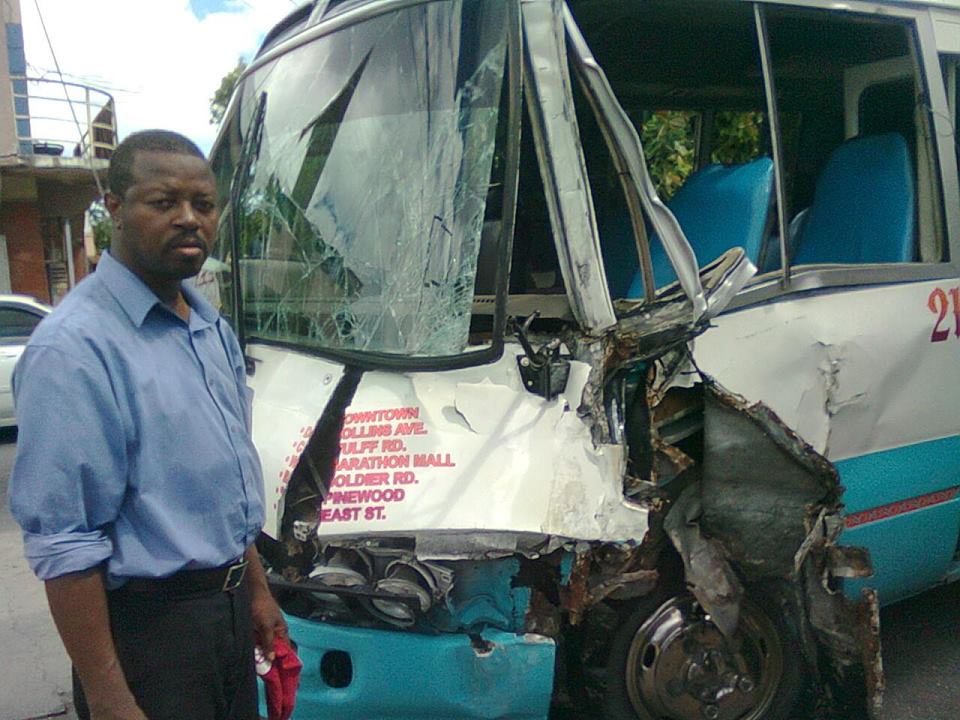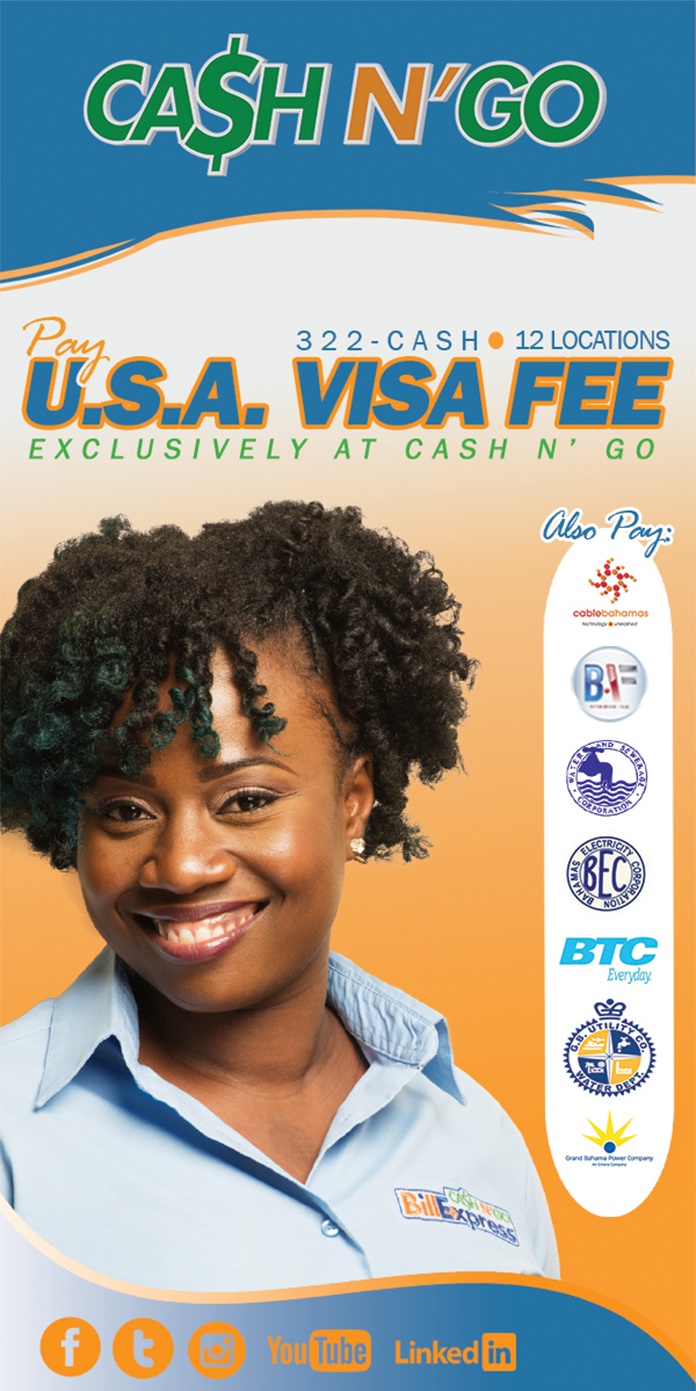
THE problem with our chaotic road use culture is not lack of driving knowledge and skills; it is that most drivers do not understand how to properly use the road.
I’ve been sitting on this letter since the beginning of the year with the intent to observe road use patterns which contribute to the gruesome, costly and unnecessary accidents on our roadways.
Let me also say that I have not driven in any other country where the road use culture is comparable to the level of dangerous driving, inconsideration and prevalent clear breach of laws like I have experienced in my Bahamas.
And it is not me alone. I’ve talked with visitors and residents who all feel the same. What is hard for me to understand is that our road network is very small, the distance between downtown and residential area for the average commuter is not far, yet some drivers, especially bus and taxi drivers, operate like they are always late, always in a rush.
Newsflash: If you are late, plan the use of your time better; do not drive dangerously on the road and bring misery to the lives of people just like yourself, who are also working hard to make a daily bread.
Before listing the patterns I alluded to earlier, I must say that, promoting and rewarding proper road use must involve:
(1) Greater enforcement of fines and penalties for even the smallest of driving offences, including failing to signal before a turn, illegal overtaking, double-parking, and so on
(2) Modernised training and testing for driver’s licences. For example, the book one has to study in order to obtain a driver’s licence in The Bahamas focuses on understanding road signs, speed limits, and in general laws pertaining to road usage. Little actually speaks to proper road use behaviours based on best practices and actually result in chaos and frequent accidents
(3) A points-based driver’s licence system ought to be implemented. There are drivers who have permanently injured persons and property but have received a slap on the wrist and either paid a small fine or settled the matter out of court. These drivers continue to drive on our roadways today.
(4) Reduce opportunities for bribes to be paid to traffic cops, either to turn a blind eye or compromise the integrity of an investigation.
What follows is a list of road use behaviours which I have personally observed and recognise as some of the main contributing factors of the alarming rate of accidents and road rage in The Bahamas:
(a) Excessive speeding – I have seen persons speeding to be the first in line at a red light, or speeding to get in front of a car the speeding driver perceives is moving too slowly, only to end up right in front of the slow driver and begin moving at the pace they were moving when they were behind the perceived slower driver. This is one of the most imbecilic observations I have come across.
(b) Failure to stop for vehicles reversing into oncoming traffic – time and time again, I have seen cars reversing and drivers speeding past the reversing car instead of waiting 3-5 seconds for the car to complete reversing and drive off.
(c) Driving through red lights – I cannot count the number of times I’ve seen bus and car drivers, and even drivers of police and government vehicles driving straight through a red light without any indication that there was an emergency or need to. How can drivers be expected to follow the rules of the road and practise good road use behaviours when those entrusted with upholding the law are the very ones breaking the law?
(d) Failure to stop within reasonable distance of an intersection or corner before proceeding straight or turning. In other words, many drivers ‘poke out’ the front of their vehicles at these junctions in hope of getting the oncoming traffic to slow and stop so the driver can proceed to turn or drive straight across the road.
These drivers are the causes or many fender-benders and further traffic delays.
(e) Accelerating through blind spots. This I can never understand. Blind spots are created when someone is unable to see the end he/she is preparing to make, or if the drive cannot see the completion of the manoeuvre he/she intends to make. Therefore, the said driver is unable to see if another road user is proceeding into the driver’s path either from the side, opposite direction, or from an angle.
(f) Illegal and risky overtaking. Some drivers just need to speed, but speed and stupidity are a deadly combination. Add alcohol and peer pressure and we begin to see the complexity of our road use culture. I’ve seen overtaking around turns and overtaking by drivers who decide that the road shoulder or parapet is part of the road.
(g) Unnecessary use of car horns. Bahamians are funny creatures. We call for, and expect, development; yet many of us, by way of our behaviours and thoughts, contribute to the underdevelopment of our families, homes and communities. There is no need to use your horn just before or as soon as the light is changing from red to green. There is no need to use your horn multiple times in a traffic congestion; everyone wants to get out of it, not just you.
I list this here because use of horns distracts drivers, which causes them to react to the horn and lose focus, albeit briefly.
There are a number of other behaviours which reveal that there is a grave lack of consideration on the part of many drivers. I believe if we were to encourage and promote specific behavioural change involving the above-mentioned improper road use behavioural patterns, we would see less accidents and more consideration applied by drivers.
In time, the road use culture in The Bahamas would improve, even in the absence of a points-based driver’s licence system, increased penalties for erring drivers, and so on.
It is my hope that the relevant ministries and agencies would see this problem as a national problem. And if they are serious about getting to the root and reversing the dangerous road use culture in our country, I also suggest that more research is needed, and I would propose launching of a behavioural change campaign called ‘Respect the Road’, which focuses on engaging all road users, not only drivers, in shaping our understanding of their road use experiences, and how we can prevent and mitigate road use behaviours that lead to high death rates, high incidences of vehicular accidents, injuries, and damage to persons and properties.









